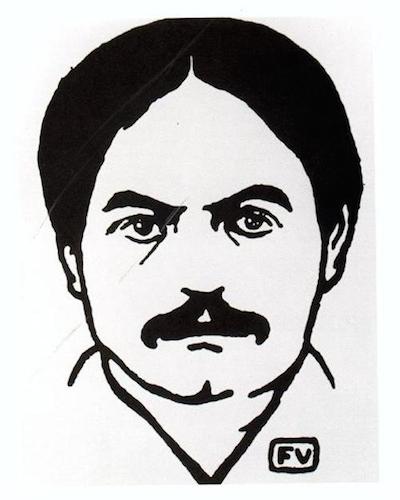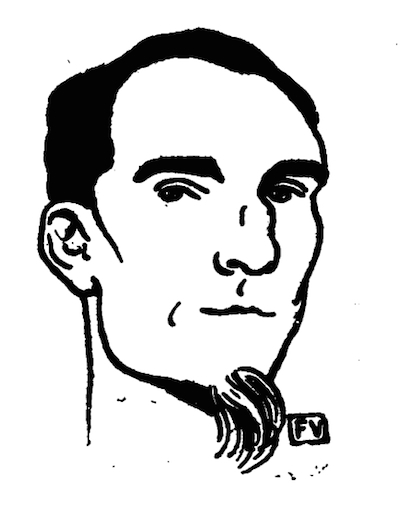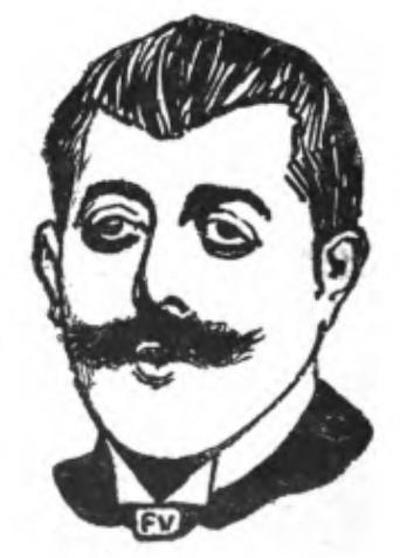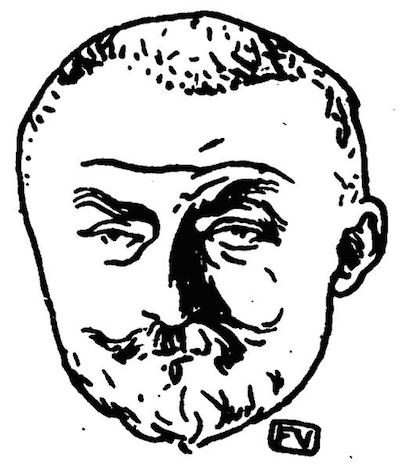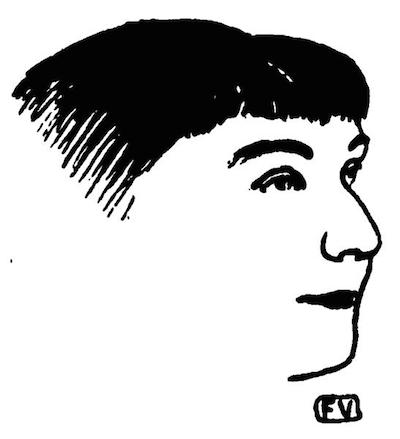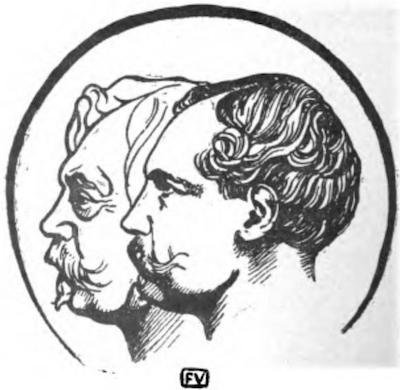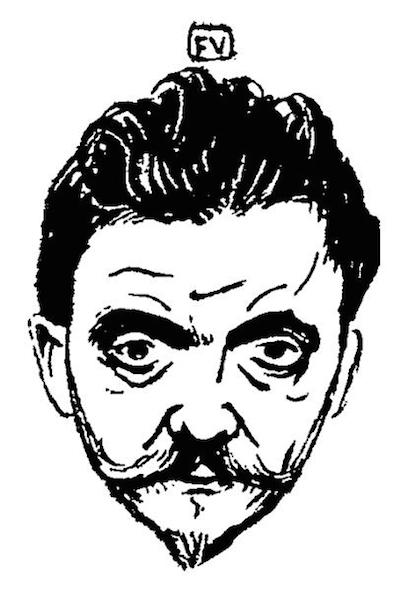LOST DE QUINCEYEAN DREAM NUMBER ONE
The 1821 revised Confessions were to contain “the crowning grace” of twenty to twenty-five dreams, but nearly all these prose poems were burned or lost. In one of these, De Quincey’s nightmare exiles him to a solemn, ruinous city. Gargoyles guard its arched entrance, inscribed with a slogan from Ovid: Dolor Ipse Disertum Fecerat. The streets abandoned save for the sense no one lives here. Just when he’s sure no one’s about, a pallid gaunt man in a top hat and long black trenchcoat hurries out a small door and proceeds briskly toward the poet with pure purpose. The pale stranger nears, gray eyes staring maliciously into De Quincey’s. Then, like opiumsmoke, walks right through him.
A SECOND LOST DE QUINCEYEAN DREAM
Le flâneur magnifique, De Quincey dreams that, while walking down Parisian streets, he’s truly gliding backwards. The dream soon has him rushing faster in reverse, then flying head over heels, sire of some cyclonic gyre, flown down and swallowed by a south pole Symmes Hole, tumbling into hollow earth. Shivering high diver into stalictite caverns. Traveler, his sieve-like vessel leaking flames on subterranean rivers of fire. He wakes in the tower of Remedios Vara’s painting Embroidering the Earth’s Mantle. It’s frightening to be suddenly blinded by the glare of his threadbare suit, an incandescent gold. To see his shirtsleeves, now lava flows. His coattails fulgurite. And what a hat! An ash cloud plume, rising from the brim to sublime heights of cumulus. The crown stitched here and there with lightning.
LOST DE QUINCEYEAN DREAM NUMBER THREE
De Quincey dreams of sleeping cities long before electricity exists, cities whose steeples truly knew the moon. Cities seemingly deeply asleep, save for a scant lantern swaying down an alley, or a single flickering, candlelit room. He dreams of sleeping cities, silent cities which won’t let a rustle, not one whisper, slip. Not one hum from Northumbrian lowlands. With closed eyes like locked apothecary doors. A flock of insomniacs resume their posts as woe’s own nightwatchmen. He dreams of passengers restlessly sleeping on trains, perturbed, yet failing to complain, keeping to themselves. He dreams of sleep deprivation’s selling its last estate, sits betwixt narcoleptic auctioneer and hypnogogue who, drifting off, forgets to bid. Cities slide by in shimmering nightclothes, slow Barcelonas, languid Madrids, embark in darkness’s black fabric. De Quincey dreams of new dreams silently settling in, like a scarlet ibis retires to its nest. Strange visions dilate strange eyes, open the white flower of so many nightblooming minds beneath so many thousand eyelids.
THE FIFTEENTH LOST DE QUINCEYEAN DREAM
He dreams he’s a jockey galloping ahead of all of the other thoroughbreds on a steed named Celestial Hallucination, one of hundreds of horses the Zetas race in the United States to launder millions in fiendish proceeds. The horse gallops faster and faster, murdering the competition, then leaps steeplechase-style over the track and fence, metamorphosing beneath De Quincey into a manyheaded beast. Sudden heads of sabertoothed tigers and tyrannosaurus rex crane their necks to salivate on him. Their gleaming teeth can’t quite reach him. Burying his face in its mane, he grips the chimera tighter. Glancing down, he sees his legs and arms have fused into the beast. His limbs belong to the wild scaffolding and bellows of its wings, hot and loud as a jet engine, part of this monstrosity flying higher into the air, this thing shapeshifting all the while with fangs gaping, slavering jaws wide, soaring somewhere in the stratosphere, trying to eat him alive.
From Matt Schumacher’s unpublished collection A Missing Suspiria de Profundis
























